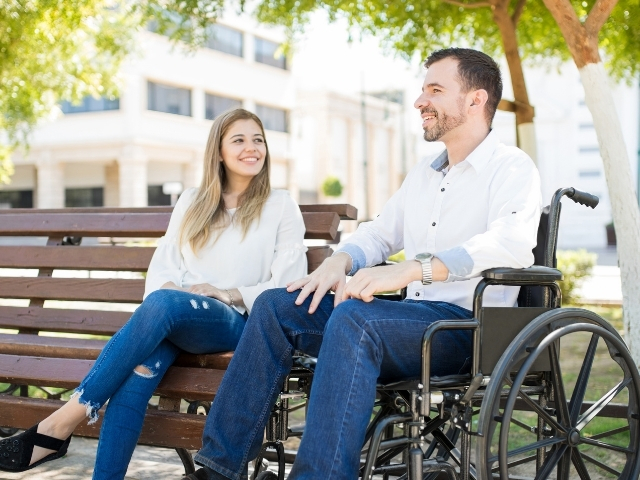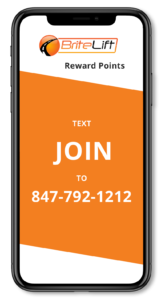Your Partner Will Require Extra Care
Not many singles out there have the strength and knowledge to date a person with disabilities, and that’s okay. But, it’s not just the dating scene. It is also not unusual for relationships and marriages to fall apart in the face of an accident leaving one of the partners injured and/or with a disability.
Although, leaving someone in need is not what you’d call “noble doing,” it’s always better (and more honest) to leave straight away than torture the other person with your disinterest, guilt reproaches, or incapacity to provide their needed care. When it comes to relationships with those with disabilities, it’s all about either being fully committed or not at all.
Not Everyone Is Like That, Are They?
Luckily, they are not. There are those who, despite finding their partner’s disability an evident obstacle to a number of activities they would do together, they still don’t see it as a matter they cannot overcome. Known are cases of couples becoming much closer, more loving and caring with each other than they were prior to the accident.
When a relationship becomes transparent, honest, and people start relying on each other fully, everyone is vulnerable and aware of the importance of the other person’s life, dedication, and love. And that makes things almost unbreakable.

I Have a Partner with a Disability. What Can I Do?
If your partner has recently suffered an injury, is permanently with a disability, or has a silent health problem, here are 5 tips to help you make their life better, easier, and more fulfilled.
Don’t Give Them Any Kind of Special Treatment
Paradoxically to their situation, those with disabilities don’t enjoy being given any kind of special treatment. Their disability is already making them feel “special” enough, so any kind of condescension will make them feel less of a person. Plus, treating them any differently will signal them that you feel sorry for them, and that’s not the feeling you want to awaken.
Instead, include them in your regular activities, assign them house chores like you normally would (obviously, something they can do), include them in the everyday stuff, and, most importantly, don’t pretend the disability isn’t there.
Even when you are booking adult day services, transportation for doctor’s appointments, physical therapies, etc., take things lightly. Acknowledge your partner’s disability, talk about it normally, and ask your partner what would make them feel better. They will appreciate an honest approach.
Ask for Professional Medical Help
It’s absolutely beautiful that you want to do everything yourself, but do know that it’s best you consult a medical professional that would help you with your partner’s disability, at least until you learn to do things yourself.
Whether it’s learning how to book medical transportation near your location, where to find wheelchair-accessible transportation close by when you need it, or how to hire a (part-time) nurse that would come over and help out, it’s all okay. If you are pushing yourself too hard, you’ll eventually burn out and won’t be of much use to either yourself or your partner.

Respect Their Pride
It’s no secret that people with disabilities tend to be rather proud, especially when it comes to tasks they aren’t entirely capable of doing alone. While instinctively you may be prone to ask whether they need help, you need to be careful not to cross the line. Asking if they can do something is okay; pushing them to accept your help is wrong.
Your partner is aware they have a disability, and the last thing they want is for you to remind them of it by being too condescending about it. Don’t humiliate them by actively reminding them of things they CAN’T do. Respect their pride, at all costs.
Download Our App
Easily schedule rides for you, or a family member.
Emotional Support Is of Essence
Being in a relationship with a person with disabilities is not only about the practical ways you can help them. It’s about emotional support, too. Be aware that your partner is likely to get fragile from time to time, simply because they’ve been through a lot. So be kind and compassionate and sometimes tolerant of their emotional reactions.
Healthy emotional support and care go a long way (with both those with and without a disability), so make sure you are there for your partner. Support them, defend their honor, talk to them if they need it, make them laugh, be their rock.
Don’t Be Overly Positive
Any type of forced behavior is obvious, to your partner and everyone around you. If you are constantly in a super positive mood, your partner will know you are faking it, and feel offended. Instead, to make the atmosphere great, just be. Don’t be afraid to show your partner you had a bad day at work, a fight with your friend, a happy moment with your mom, etc. Live life normally, let your partner be a part of it, and you’ll be okay.
BriteLift is your go-to non-emergency transport provider that’ll help you and your loved one live an easier everyday life in terms of transportation necessities. With a fully trained staff, wheelchair-accessible vehicles, and all the assistance you may need, you’ll want to book us again. Call 847-792-1212, download the mobile app, or book online.



